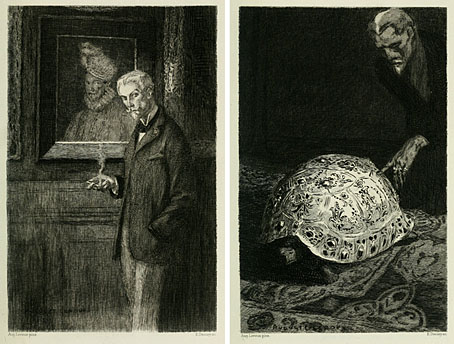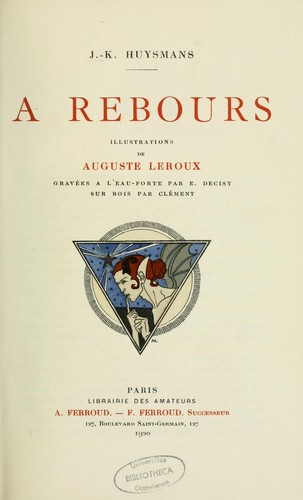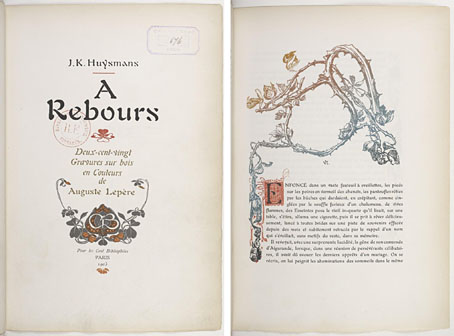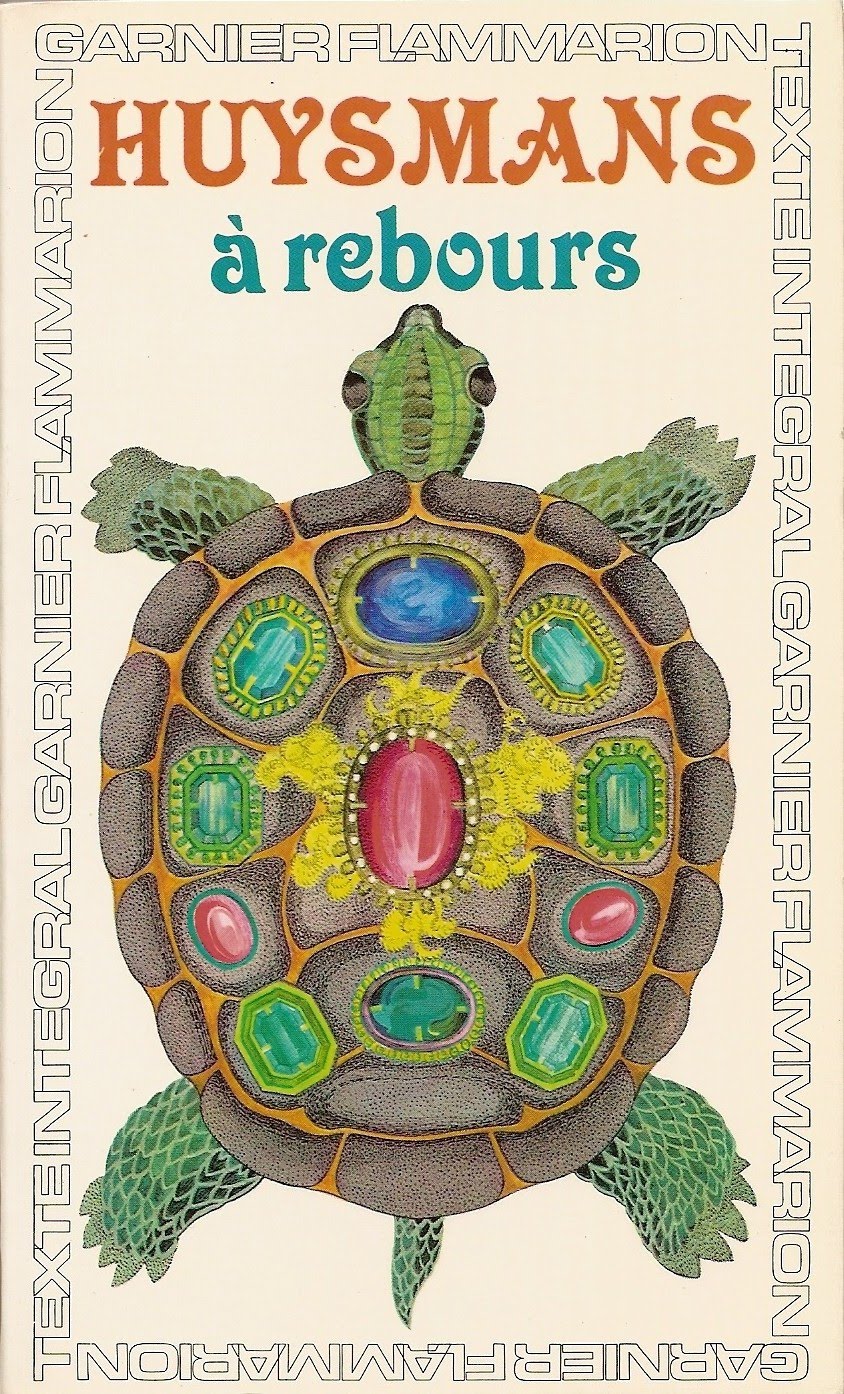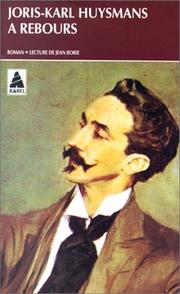À rebours
Against the Grain ( Alternative title: Against all; Original title: À Rebours ) is the most famous work by the French writer Joris -Karl Huysmans. With the 1884 novel, Huysmans broke definitively with the spirit of his earlier, realistic works and put the concept of decadence a monument. À Rebours was for the supporters and representatives of decadent, symbolist and L' art pour l'art soon became a cult book.
Action
Protagonist of the novel is action- poor Jean Des Esseintes Floressas, an eccentric French aristocrat and decadent esthete, the last of his race. Des Esseintes is educated in a Jesuit school and then enjoys the decadent life of the aristocratic high society in the late 19th century. Dissatisfied and disappointed by this life and incapable of human contact he pulls on the outskirts of Paris in a house back, which is equipped extravagant according to his ideas.
Des Esseintes the thesis of aestheticism that nature is primitive and inferior to the human mind, which is why he prefers anything artificial to the natural. In the solitude of Des Esseintes is dedicated to his hobbies: he collects special books of ancient, early Christian and medieval authors he can make the part in a single output on the finest paper and exquisite bindings for itself; he devoted himself to the fine arts, especially painting, in which he particularly Odilon Redon and Gustave Moreau preferred; he lays down a comprehensive collection of exotic plants that cost a fortune and go soon, dealing with precious stones and fragrances and can be sarcastic from over religion. His favorite literature are the works of Flaubert, Poe and Baudelaire. For symbol of his life killing style will be a giant turtle, which he procures himself to adorn one of his rugs. As they color but does not seem to suit him, he lets the armor of the beast so with gold and precious stones decorate that the turtle dies from it. His lifestyle eventually ruined his health and promotes its neuroses. He is wasting slowly then. Desperate, he can fetch a Parisian doctor. This "forces" him to return to society. The extent to which this return, the recovery Des Esseintes ', results leaves open the novel. The text concludes with a prayer Des Esseintes: "(...) Lord, have pity on the Christian who doubts, with an infidel who wants to believe the convict of life, who rises up at night, alone under the firmament, is no longer illuminated by the torches of ancient consolation hope! "
In his twenty years after the first publication resulting preface to cited Against the Grain Huysmans Barbey d' Aurevilly, who had written in a meeting at Constitutionnel on July 28, 1884 " After such a book the author remains only the choice between the mouth of a gun and the foot of the cross. " "This happened," commented Huysmans this enter an appearance which could both Des Esseintes as apply to him.
Reception in literature and pop culture
- A French novel that inspired the protagonist in Oscar Wilde's novel The Picture of Dorian Gray decadent debauchery, is often interpreted as an allusion to À Rebours. Wilde was - as Stéphane Mallarmé - an admirer of the novel.
- The song Against the Grain of the Hamburg band Tocotronic also relates to the novel, what Dirk von Lowtzow confirmed in various interviews. Moreover, in the accompanying video clip a cover illustration is shown.
- À Rebours is the title of a song by the British band In the Nursery on the album Duality and the title of a song on the album Babyshambles Down in Albion.


